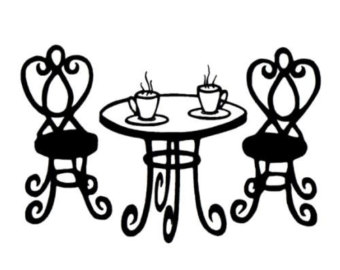Why do the Brits. live in France.
Many British retirees have opted to live in France. Whether they seek the slower pace of life or realise that their British pension can stretch further, with lower house prices and, according to the UK government, lower winter fuel bills! Depending on your location there is no doubt that the dryer climate can benefit our ageing joints. The reality is that, while the populations of France and the UK are roughly similar, French residents have more than double the landmass to wander around in.
Concerns over Britain leaving the European Union have sent some expats scurrying back to the UK, but we are told that, despite the process being much more difficult, there is still a healthy demand from Brits. relocating to France. The real losers are those who have holiday homes which they can now only use for three months at a time.

The New Normal
The Covid pandemic has made people the world over reassess the important things in life. According to my Father, who spent some time in Europe working for an American company, the French had their priorities sorted out long ago. He always said that “the French work to live while the Americans live to work.” Even so we have seen “working from home” becoming the new normal in France.
City centre workers often occupy small apartments with the lucky ones retreating to their county homes at weekends. The Friday afternoon exit from Paris is legendary. Now, thanks to the internet, office workers are realising that working from a home in the county is an option. Good transport links enable them to pop into the city for meeting when necessary and the price of rural property have already increased.
There are the obvious cultural differences between the British and French but a couple of things seem to stand out.
In France, it is absolutely essential to acknowledge the presence of other people. If you step into a shop or walk passed an adjacent table in a restaurant when being shown to yours, a ‘bonjour’ is required. Even in the supermarket the checkout girl will greet you with a ‘bonjour’ and it is considered rude to ignore those closest to you in the queue. In complete contrast to the UK where the slightest glance or eye contact, let alone a greeting with ones fellow shopper or diner is meet with a snarl or ‘what’s your problem mate.’ Its very difficult to make the transition back to the correct etiquette after being in the other country for a week or two.
When in France the handshake is also very important and of course ‘la bise’ the greeting for someone (usually female) that you know well. Be patient, the person attending to you, may find it necessary to step aside to greet late arrivals to the office. For a moment the handshakes and kisses must take precedence over your business. The Covid pandemic has been responsible for speeding up this little ritual.

A different attitude:
The French genuinely try to buy their own goods and produce. They accept that German cars may be better built and that Spanish fruit and vegetables are cheaper, so its a real dilemma for them but they often take the French option. They are very different to the British consumers who import a much higher proportion of food and goods anyway.
It is due to the strength of the UK’s financial service industry, that its economy has been consumer driven, built on easy credit and the resultant debt. In contrast the French rarely use Credit Cards, although the rely heavily on bank cards with payments being immediately charged to a regular bank account or accrued at the month end. Of course it is possible to agree a small overdraft or finance for a car, but the emphasis is on saving for the things you need and not the spend now worry about it later culture.
Covid 19:
Obviously being a politician in the midst of a Global pandemic is not a lot of fun. We have to say that despite the lockdowns, confinements and curfews, we felt reasonably safe here in France. Even our mayor managed to provide us with face masks, hand gel and flour for baking when there were shortages in the early days. Being retired and living in a small rural community with the benefit of outside space and jobs to do around the house, was vastly different to anyone living, working and raising children in a city during the worst times.
Of course we missed travelling, participating in local events and occasionally visiting our favourite restaurants, but on the positive side, France had been investing heavily in the internet so we were easily able to connect to the world, virtually at least.
The internet:
In France, even prior to the pandemic, 90% of access to its vast bureaucracy had to be done over the internet. Starting with children downloading their homework, through to taxes, most aspects of administration and health services. Apart from visiting the doctor everything is done on line. This naturally boosted “working from home” for those who could do so, but it is a problem for anyone who is not very tec-minded and there are areas where connections are still poor.
A question of identity:
One of the anomalies of life in France is that a married woman retains her maiden name on all official documents. This is actually normal in many European countries, but can come as a surprise in countries such as the UK where married women nearly always take their husbands family name. As one official said, “it saves a lot of paperwork if you change your husband”. We noticed this a few years ago when we received new French drivers licences and more recently with the European “Pass Sanitaire,” as my wife’s documents mentioned only her maiden name.
A quick look around the internet revealed that several women had encountered problems in proving their identity. For example, (a) when presenting a drivers licence at the car hire desk which did not match the name on her booking and bank card, and (b) a woman not being allowed to board a flight booked in her married (family) name because her Covid test or vaccination certificate only showed her maiden name. Therefore it is important to check that documents state both maiden and married names or perhaps married women have to travel with their marriage licence!